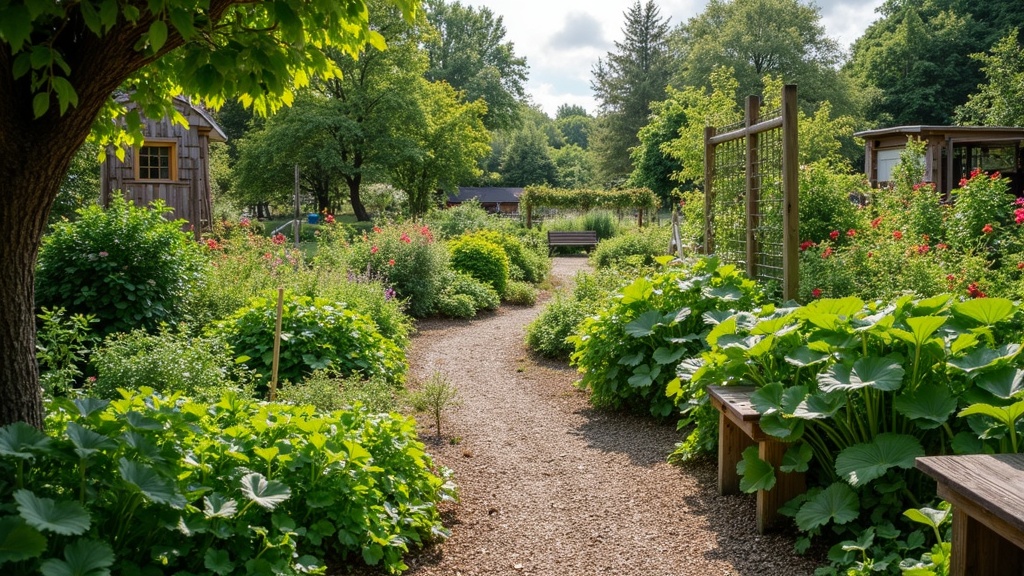Finding plantbased support groups nearby can make your adventure way more enjoyable and less overwhelming.
Sharing tips, recipes, restaurant finds, and just connecting over daily experiences adds a real sense of community, whether you’re following a plantbased diet for health, animals, or the planet.
If you’ve ever wondered where to actually meet likeminded folks in your area, you’re not alone.
Here’s a guide for finding plantbased support groups in your neighborhood, along with some handy digital routes to get you started.

Why Join a Plantbased Support Group?
Adopting a plantbased lifestyle has become pretty popular, but it can still feel isolating, especially if family and friends aren’t on the same path.
Support groups provide a space for sharing, learning, and encouraging each other.
I’ve found that connecting with others helped me handle tricky spots, like family gatherings or figuring out what to order at local restaurants.
Kind of like having a team cheering you on, a plantbased support group makes sticking to your goals and finding joy in new routines much easier.
Besides emotional support, these groups can clue you in on things like local plantbasedfriendly stores, new food products, eating out options, and upcoming events.
Seeing other people thrive on a plantbased lifestyle also helps keep motivation high.
Where to Look for Plantbased Support Locally
One of the quickest ways to get started is by searching online directories dedicated to plantbased or vegan groups.
Most major cities and many suburbs have both inperson and virtual club options, but a few approaches make finding them easier and less stressful.
- Meetup.com: This is probably my favorite tool for finding local interest groups. Just search for “plantbased,” “vegan,” or “vegetarian” in your area, and loads of options usually pop up. You can see the group’s focus, how often they meet, and even check out photos from past events. Many groups welcome everyone, from curious omnivores to longtime vegans.
- Local Facebook Groups: Search Facebook using your city plus keywords like “plantbased,” “vegan,” or “vegetarian.” I found a fantastic local produceswap club just by scrolling community groups. Some pages also organize regular potlucks or walks in the park.
- Health Food Stores & Coops: Bulletin boards near the entrance are old school but still super useful. Health stores often post flyers about club meetups, cooking classes, or support cafes that might not have a big web presence.
- Plantbased Nonprofits and Organizations: Larger groups like the Vegetarian Resource Group, Vegan Society, or PlantPure Communities have directories or local chapters you can filter by location. Some even offer mentorship programs to match you with a buddy nearby.
- Community Centers and Libraries: These places love to host free wellness or cooking workshops, sometimes just once a month, other times more regular meetups. The best ones often include a social aspect, like tastings or recipe swaps.
How to Narrow Down the Right Group For You
Not every plantbased group is going to vibe perfectly with your personality or schedule, and that’s totally normal.
I always check out the group description and a few past posts or event recaps before signing up for anything.
Here are some questions I ask myself when deciding if a group might be a good fit:
- Does the group focus on health, ethical reasons, environmentalism, or a mix?
- How often do they meet, and are the events convenient for my schedule?
- Are meetings inperson, online, or hybrid? What locations are the events in?
- Is the group open to all dietary levels (vegan, vegetarian, plantcurious), or is it stricter?
- Do people seem friendly and welcoming to newcomers?
Don’t stress about testing out more than one.
Most groups are happy to see new faces, no big commitment required.
Sometimes, it takes a few tries to find a crowd that feels just right.
You might even bump into the same folks at different meetups, especially in smaller towns.
Top Ways to Connect With Groups Online
While local, inperson groups have their perks, there are also amazing online communities, handy if you live somewhere remote or just prefer digital chats first.
Joining a virtual group can build confidence before heading to events.
Here’s what I find works well to meet others:
- Reddit: Subreddits like r/plantbased, r/vegan, and r/vegetarian have global reach, but you’ll find city or statespecific threads where folks organize popup potlucks or restaurant outings.
- Discord: Several plantbased servers have channels dedicated to local meetups, accountability checkins, and recipe trading. New members are often greeted with resource lists for different regions.
- Instagram & TikTok: Local plantbased hashtags can connect you with events, influencerled picnics, and niche food swaps right in your backyard. Try searching #PlantBased[YourCity] or #Vegan[YourCity].
There are also dedicated apps for people looking to connect around plantbased eating, like Veggly (for dating and making friends) and abillion (for local vegan business reviews).
These platforms can expand your options and help you find nearby events or meetups tailored to your interests.
First Steps: How to Join and What To Expect
After finding a group that piques your interest, I usually recommend just introducing yourself online, or RSVP to a casual group meetup, such as a coffee chat or park walk.
Most groups are happy to explain how their meetings work; there’s no pressure to be a plantbased pro.
Meetings run the full range: recipe swap nights, community potlucks, guest speaker seminars, restaurant outings, and even volunteer projects.
I took part in a local veggie soup drive last winter and gained both new friends and meal ideas.
- Wear comfy clothes (potluck stains happen, and you might sit on picnic blankets).
- Bring a notebook or phone for ideas and recommendations from members.
- If you’re able, take a favorite plantbased snack to share, homemade or storebought both work!
Sometimes, you’ll find extra support options, like WhatsApp or Signal chat groups, that keep members connected between events.
This is a great way to keep up with local grocery deals, alerts about new plantbased menu items, or lastminute hangouts.
Common Challenges and How to Tackle Them
It’s pretty normal to feel nervous or unsure before joining a new group, but there are a few things that help it feel less daunting:
- Intimidation Factor: Remember, everyone started somewhere, and most plantbased group members are happy to help newbies or those just testing the waters.
- Tight Schedules: Many support groups offer both weekend and weekday events, plus some virtual options. If you’re strapped for time, joining an onlineonly community still brings a lot of value.
- Different Diet Levels: It’s okay if you’re not 100% plantbased yet. Plenty of groups welcome anyone looking to eat more plants; just check group descriptions or message the admins if you’re unsure.
- Accessibility: If mobility, distance, or transport is a concern, ask about carpools, virtual links, or rotating venues. Many communities want events to be as inclusive as possible.
Types of Plantbased Groups You’ll Find
The term “support group” is actually super broad.
Here are a few examples of the types you’ll spot in most cities or active regions:
- Cooking Clubs: Handson gettogethers focused on meal prepping, cooking demos, or swapping recipe ideas.
- Wellness Groups: These might focus on nutrition advice, local walks or runs, or guided meditation, all plantbased friendly of course.
- Dining Out Societies: Members meet up at restaurants with plantbased menus to try out new dishes together.
- Parent & Kid Groups: Familyfriendly meetups, sometimes with cooking lessons for kids or plantbased lunchbox swaps.
- Lifestyle & Advocacy Networks: Members volunteer or organize outreach events, sometimes in partnership with animal sanctuaries or local environmental groups.
You can also stumble upon groups focused on specific cuisines, such as Mediterranean plantbased dinners or even “raw food only” meetups.
Some clubs host movie nights featuring food documentaries, which can spark bigger discussions about plantbased living and inspire newcomers.
This diversity means it’s easier to find your ideal group vibe.
RealWorld Experiences
To give you an idea, when I first joined my city’s plantbased group, I was worried I’d stand out for not knowing every nutrition fact or where to find the trendiest vegan nachos.
But I met longtimers who remembered being just as overwhelmed, and a couple of other fresh faces who wanted the same thing; support in their plantbased goals.
People shared their stories, including tips for eating at chain restaurants and what to bring to family potlucks.
Over time, these meetings turned into lasting friendships and a deeper sense of belonging.
Frequently Asked Questions
Question: How do I find out if there’s already a plantbased support group in my town?
Answer:
Online directories, Meetup.com, Facebook, and bulletin boards at coops or health food stores are really good places to start.
If nothing turns up, start a new group using these same platforms; you’ll be surprised how many people are looking for community.
Question: What if I want to try creating my own meetup?
Answer:
It’s easier than you think.
Pick a public spot like a library, park, or coffee shop, post about it in community groups, and keep the invite lowpressure.
Even two or three people is a great start.
Question: Can I join if I’m only parttime plantbased or just curious?
Answer:
Definitely!
Most groups welcome everyone, and there’s real value in learning from people with all kinds of backgrounds and levels of commitment.
Takeaways For Finding Your Plantbased Community
Connecting with plantbased or vegan support groups in your area can bring a new level of inspiration and practical knowhow, whether you’re just curious or have been eating plantbased for years.
Getting involved might mean trying a few different groups, dropping in for a single potluck, or just finding an online space to swap ideas.
The main thing is not being afraid to reach out, ask questions, and share your own food adventures; you’ll probably stumble upon more plantbased folks nearby than you thought.
Finding your local crew opens doors to new friends, better restaurant tips, and plenty of encouragement for your plantbased adventure.
Give it a try and see what positive things take root!
